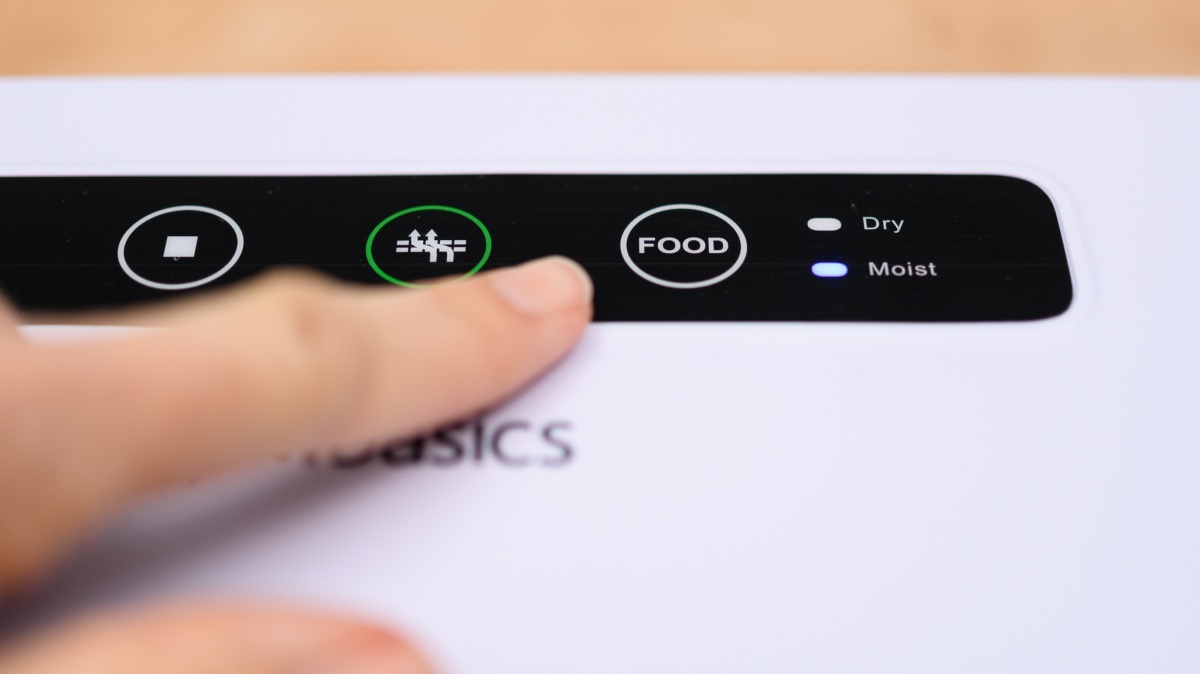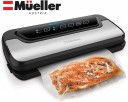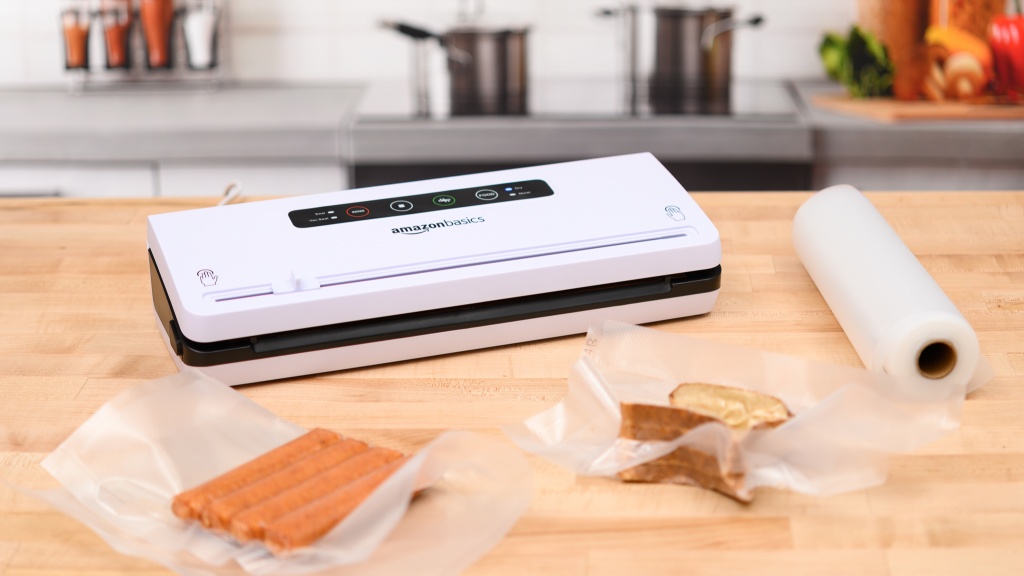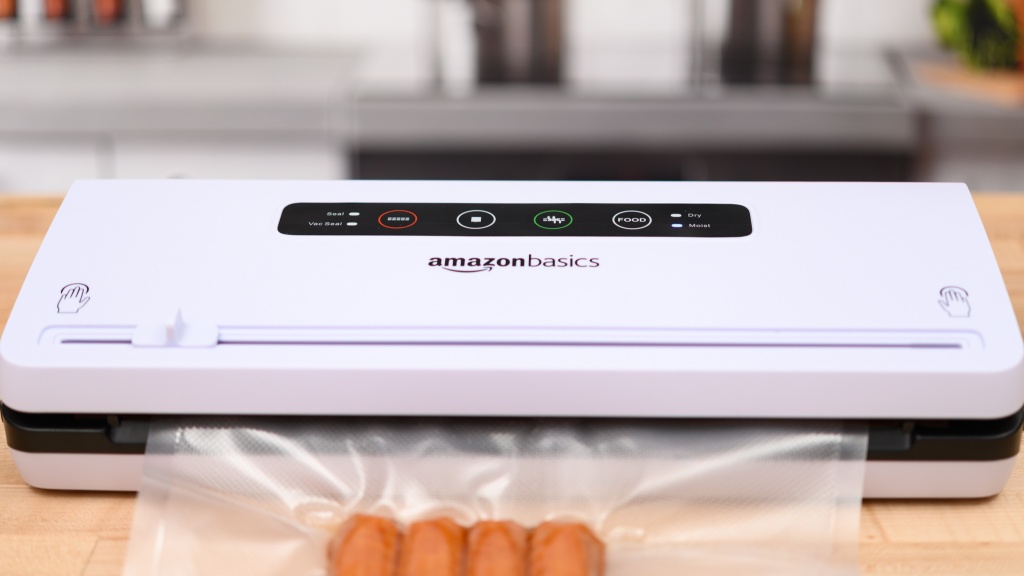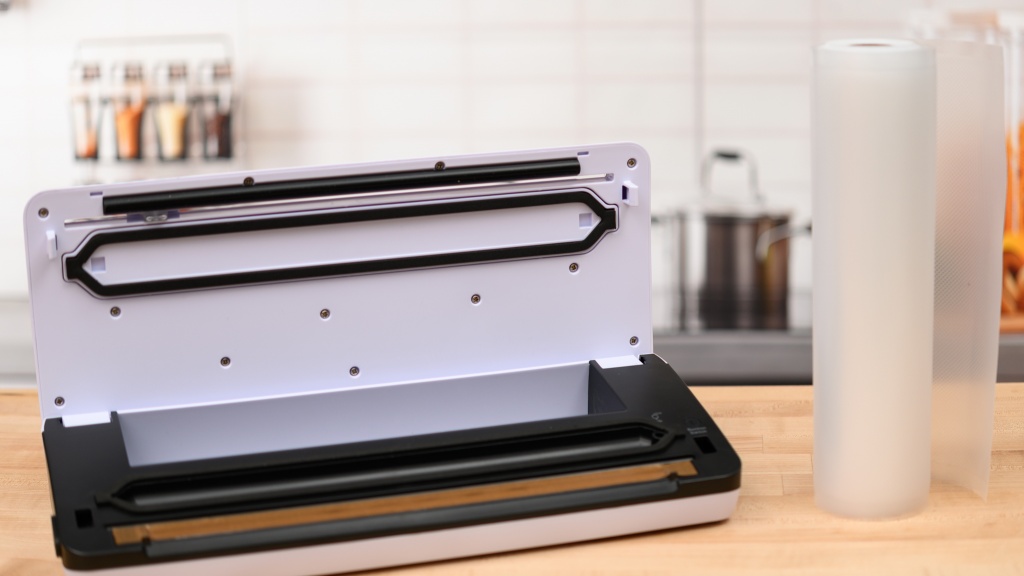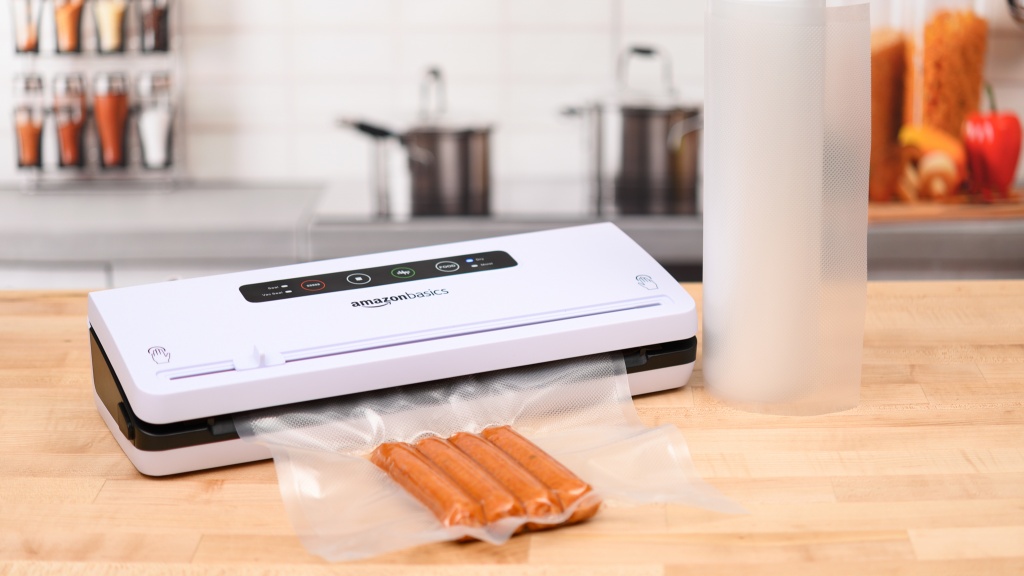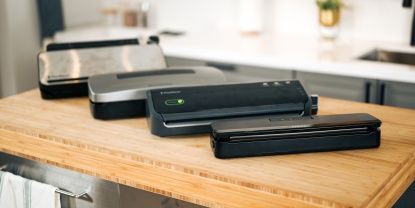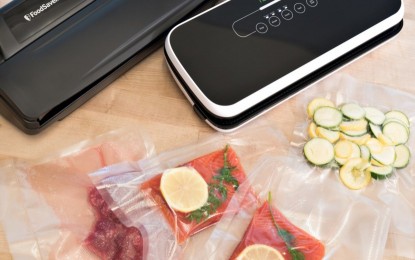Amazon Basics Vacuum Sealer Review
Our Verdict
Compare to Similar Products
 This Product Amazon Basics Vacuum Sealer | |||||
|---|---|---|---|---|---|
| Awards | Best Overall Vacuum Sealer | Best for Delicate Foods | |||
| Price | $50 List | $70 List | $70 List $75.28 at Amazon | $120 List | $70 List $41.99 at Amazon |
Overall Score  |
|||||
| Star Rating | |||||
| Bottom Line | This affordable and convenient unit can seal up to 30 bags in a row while remaining gentle on tender food | This relatively inexpensive unit is packed with convenience features, is easy to operate, and has a soft touch for delicate foods | This sealer offers above-average performance particularly in delicate foods assessment | This mid-size model is convenient and generally performs well across the board | While not a leader in any of our evaluations, this model is nonetheless functional and quite inexpensive |
| Rating Categories | Amazon Basics Vacuu... | Mueller Vacuum Sealer | NutriChef PKVS18BK | FoodSaver FM2000 | Geryon E2900-MS |
| Sealing Performance (40%) | |||||
| Convenience (30%) | |||||
| Delicate Foods (20%) | |||||
| Suction Power (10%) | |||||
| Specs | Amazon Basics Vacuu... | Mueller Vacuum Sealer | NutriChef PKVS18BK | FoodSaver FM2000 | Geryon E2900-MS |
| Measured Vacuum Strength @ 6200' | 14.5 -inHg | 19 -inHg | 18 -inHg | 15 -inHg | 16.5 -inHg |
| Measured Weight | 3.1 lbs | 2.7 lbs | 2.9 lbs | 3.7 Ibs | 2.2 lbs |
| Air Suction Hose Included? | Yes | Yes | Yes | Yes | Yes |
| Removable Tray? | No | No | No | Yes | No |
| Built-in Roll Storage? | Yes | No | No | No | No |
| Built-in Bag Cutter? | Yes | No | No | No | No |
| Measured Seal Thickness | 3 mm | 2 mm | 2.5 mm | 3mm | 2 mm |
| Measured Average Seal Time | 9 seconds | 6 seconds | 7 seconds | 13 seconds | 6 seconds |
Our Analysis and Test Results
What sets the Amazon Basics sealer apart from the rest of the pack is that it has a simple design that is effective and affordable. The unit's dimensions are relatively compact, and the weight is no burden at all. The model has welcome features such as integrated bag storage and a bag cutter. Additionally, it has a hose that allows you to remove air from common food and beverage containers. All and all, one would be hard-pressed to beat this sealer at any price.
Performance Comparison
Sealing Performance
Amid stiff competition, the Amazon Basics secured a leading position in this metric because it can seal an awful lot of bags in one go. Much of the competition required a cool-off period after packing around ten bags, but this one will keep up the pace for 30 or more. Add an above-average seal width (3mm), and it is clear that this machine is designed for regular use.
We employ a few basic tests to inform our appraisal of vacuum sealers. As was mentioned above, we measure the width of the heat seal. We do this because a thin seal is indicative of a subpar heating element that produces a poor closure of the bag ends. The Basics seal is robust but not over the top for typical applications. We also tested the unit for the number of bags sealed. We used dry rice in this procedure and were nearly exhausted when this machine finally threw in the towel. Finally, we measured how much time each sealer needed to package certain foods.
We analyzed the machines' start to finish sealing times with four variations of the bag contents — bread, dry rice, ground beef, and sausage links. While the Basics didn't perform terribly, its sealing times were clustered around the class averages. Despite its middling pace, this sealer remained an overall leader in the sealing evaluation.
Convenience
The convenience metric concerns the machines' ease of use as defined by specific features that reduce the workload and make the device more versatile. The Amazon Basics did not fail to impress in this category as it is chock-full with nifty doodads, including a control interface that is both simple to learn and very responsive.
We have found that an integrated bag holder and cutter are a great time saver as one is never looking for materials and tools, so we're glad the Amazon Basics sealer offers these features. It was also pleasing to see that this unit has an auxiliary pump for removing air from various containers such as wine bottles and zipper bags. Additionally, this sealer is operated with push buttons instead of the overly sensitive (and annoying) touch interfaces used by some of the competition. Finally, the dimensions and weight of this unit are reasonable and manageable. If there is one thing the Basics is missing, it's a removable drip tray that would help to streamline clean-up.
Delicate Foods
No one wants to take the time to preserve food with a vacuum sealer only to have it be the worse for the wear. As such, we took the time to test how the sealers in our review handled delicate foods. Happily, the Amazon Basics has a gentle touch, as was demonstrated using a pair of soft and airy white bread slices.
It doesn't take an experimental physicist to show which sealers can pull air out of a vessel slowly and steadily enough to prevent constriction of the contents. For this test, we placed two slices of bread into a bag and began to remove the air by the usual means. However, as the negative pressure reached the compression point, we began to pulse the on/off button to allow the remaining air to work its way to the bag opening. The Basics performed well in this evaluation due to its immediate response when the on/off button was pressed. It also did not release the suction when cycled off. As such, the bread in question was near-perfectly preserved both in form and quality.
Suction Power
While there is a certain measure of subjective analysis in any product review, we love it when we get to run a purely objective test. Such is the case with the suction metric. This category relies on a single test that quantifies the amount of suction produced by each machine as measured in inches of mercury (in. Hg). We used a built-to-purpose gauge that tied directly into a vacuum bag as it was suctioned. In the case of the Amazon Basics, the machine can pull 14.5 in. Hg, which is quite low for our tested sealers. Power is the one metric where this sealer scored poorly, though we don't feel it negatively affected its overall performance.
Should You Buy the Amazon Basics Vacuum Sealer?
This hands-on review of the Amazon Basics shows our in-depth analysis of the performance characteristics as well as the features that make the kitchen appliance both easy to use and effective. After sealing various foods, this model is one of the best vacuum sealers and is excellent at preserving without smashing the stored items. You can't really go wrong with this unit as it is both a leader in performance and it's competitively priced.
What Other Vacuum Sealers Should You Consider?
The Amazon Basics is undoubtedly a hot deal. This machine performs at a level comparable to much more expensive products yet costs the same as some budget models. Now, that's value. We think this vacuum sealer is a suitable choice for almost everyone. However, if you are an avid hunter or angler looking for a machine that can handle super heavy-duty use to process a successful haul, then you may want to check out the Weston Pro 2300. It is not great with delicate foods but has one of the most robust suction measurements in our tests, making it perfect for solid chunks of meat.


